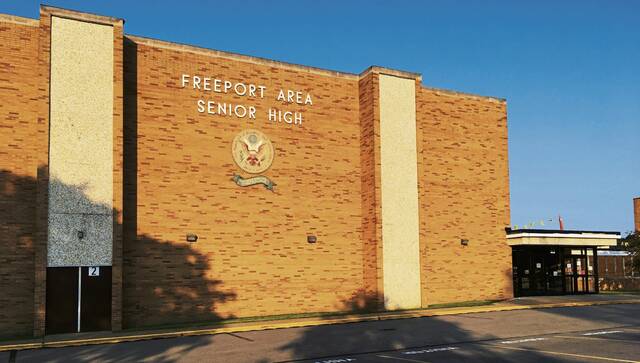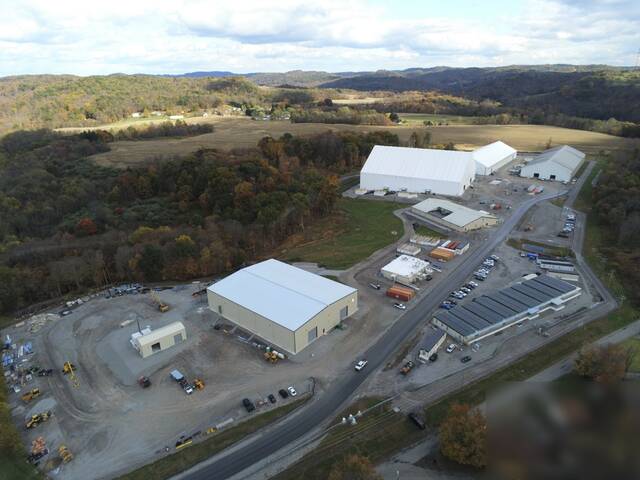School taxes will rise in one of Freeport Area School District’s communities but drop in the two others, and school directors emphasized it’s not their idea.
The school board approved the 2024-25 budget that lowers real estate taxes in the district’s Armstrong County communities by 10.42% but raises them 3.56% in the lone Butler County community, Buffalo Township. The vote was 5-3.
Board member Christine Davies pointed out that the tax increase/decrease situation is a product of rebalancing calculations by the State Tax Equalization Board.
“This was not done by us,” Davies said.
The board is a state agency that seeks to balance tax burdens in school districts that span two counties because property assessments and values usually vary between them.
In Freeport Area’s case, the board determined that in South Buffalo and Freeport, the Armstrong communities where economic growth and development has been stagnant, taxes should be lowered by 7.19 mills.
In Buffalo Township, where growth has been steady, taxes should be increased by 6.07 mills.
For an Armstrong County resident living in a house with the median assessed value of $34,195, the new millage rate means a tax decrease of $245.86. Their new bill will be $2,114..
In Buffalo Township, a resident owning a house with the median value of $22,290 will pay a 2024-25 school tax of $3,931. That’s an increase of $135.30.
District Business Manager Brad Walker and Superintendent Ian Magness said the $38.45 million budget does not reflect any “new taxes” in terms of local revenue.
Walker said last school year’s budget was funded by $17.59 million in local revenue, and that’s the same local revenue share financing the 2024-25 budget.
Magness said he has been lobbying the area’s elected state officials to change the legislation empowering the equalization board to give school boards flexibility on rebalancing the tax burden. He said officials in other multicounty districts have been doing that as well.
“There are only 84 of us out of 500 districts in the state and, if there were more, I would suspect that something would have been done by now,” Magness said.
“All we’re asking for is to have a local decision so you can spread it out more equitably,” Magness said. “They are well aware of our position.”
Board members John Haven and Michael Huth, who voted against the budget along with board member Greg Selinger, said they actually wanted to increase taxes by 3% over the new tax rates.
Huth and Haven are two of the most fiscally conservative board members. But they took that position with the aim of cutting the $688,000 deficit in the budget that the district will likely have to cover out of its fund balance.
“I was a ‘3%’ guy because that would have brought (the shortfall) down to $105,000,” Haven said. “Somewhere down the line we’re going to have to make up that $688,000.”
He said a 3% tax increase would have cost the taxpayers an additional $10 per month.
“Actually, Armstrong would not have gotten as much of a decrease,” Huth said.
In preparation for the budget, the board appointed a budget committee for the first time to do a “thorough examination” of everything involved. That included Haven and new board members Sylvia Maxwell and Daniel Ritter.
Maxwell said they could find no fault with it.
“We went through the budget with a fine tooth comb,” she said. “Mr. Walker does an incredible job with the budget. It was important for us to see that.”
Magness said the only personnel cuts were three teachers by attrition.
As for any affect on academic programs, he said, “We have limited schedule options.”
More tax hikes coming?
Board President Gary Risch and Davies cautioned residents that more tax increases may be looming.
Risch cited the dire need to do some kind of high school renovation project or reconfiguration of school buildings, labor contracts that will have to be renegotiated in the next few years and just the year-to-year cost increases for goods and services.
“This tax thing is always such an ominous thing for you and for us,” Davies told the 15 or 20 residents at the June 12 meeting. “This is painful that we have to cause you any concern over taxes. We are worried about everybody.
“And I think we are going to have to do this again in the future.”








